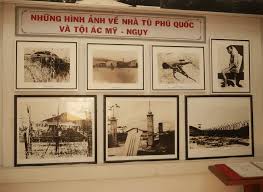The History Behind the Term Keo Nha Cai

The phrase “keo nha cai” is a fundamental term in the world of sports betting, particularly in Vietnam. Its usage reflects a long-standing tradition intertwined with cultural evolution and the development of betting strategies over decades. Exploring the history behind the term not only enhances our understanding of betting linguistics but also reveals insights into the socio-economic fabric that has shaped the gambling scene in Vietnam.
The history behind the term Kèo Nhà Cái is rich, demonstrating how language and betting practices evolve in tandem. Understanding its origins provides better tools for both novice and seasoned bettors to navigate the betting landscape intelligently.
In this article, we will delve into how the term came into being, how its usage has transformed over time, and how it remains relevant in modern sports betting. We’ll also provide practical advice on applying this historical perspective to improve betting strategies today.
The Origins of “Kèo Nhà Cái” – Tracing Its Roots in Vietnamese Gambling Culture
The term Kèo Nhà Cái has deep roots in Vietnamese gambling history, emerging from the intricate web of local betting practices. To truly appreciate its significance today, it’s essential to trace where it all began and how societal changes influenced its evolution.
The Early Days of Vietnamese Betting Traditions
Long before the modern era of betting platforms and online sportsbooks, Vietnamese betting culture was rooted in community-based activities. Traditional forms such as cockfighting, card games, and local sporting events served as fertile grounds for betting practices that eventually influenced more formalized betting terms like Kèo Nhà Cái.
In these early days, betting was often informal, conducted within close-knit communities with minimal regulation. As a result, terminology used by betters and bookmakers developed organically, reflecting local dialects, customs, and social dynamics. The term Kèo — meaning “betting odds” or “spread” — originated from these grassroots activities, indicating the potential risk and reward involved.
Transition to Formalized Betting and the Rise of Bookmakers
As Vietnamese betting practices matured, especially during the colonial period and early post-independence years, there was a shift toward more organized gambling activities. Bookmakers, or nhà cái, became prominent, setting standardized odds and managing large-scale betting pools.
This transition introduced the phrase Kèo Nhà Cái into the public lexicon, encapsulating the odds offered by the bookmakers. It symbolized not just a betting type but also a relationship of trust, risk, and strategy between the bettor and the bookmaker. Over time, this term became synonymous with the betting odds set by the house, permeating various sports and gambling sectors.
Cultural Influences and Language Evolution
Vietnamese language and culture significantly shaped how Kèo Nhà Cái was adopted and adapted. The colloquial usage of Kèo referred to the odds or the betting arrangements, while Nhà Cái denoted the bookmaker or betting house.
The period of economic growth and globalization brought new betting formats, including football betting, which popularized Kèo Nhà Cái further. As betting became more structured, the term evolved from informal slang to a technical term used by professionals and casual bettors alike. Today, understanding the history behind the term helps explain its connotations and how betting strategies are built around it.
Evolution of Kèo Nhà Cái in Modern Sports Betting – From Traditional to Digital Platforms
The landscape of betting has undergone a dramatic transformation, especially with the advent of online betting platforms. Despite these changes, the core concept of Kèo Nhà Cái remains central to understanding betting odds and strategies.
The Shift from Physical Bookmakers to Online Platforms
The transition from traditional nhà cái shops to digital platforms revolutionized how bettors engage with odds and betting options. Online sportsbooks provide a wider range of kèo, including Asian handicap, over/under, and direct betting odds, all categorized under Kèo Nhà Cái.
This shift has made access to betting odds more transparent and dynamic, allowing bettors to analyze real-time changes and make informed decisions. The term Kèo Nhà Cái has accordingly expanded in scope, covering both physical and digital betting odds, emphasizing their importance in the overall betting ecosystem.
How Modern Platforms Retain the Essence of the Original Terms
Although the medium has changed, modern Kèo Nhà Cái still retains its core meaning—representing the odds set by bookmakers. Digital platforms have simplified understanding by displaying odds alongside detailed statistics, but the fundamental principle remains: Kèo indicates the betting conditions, and Nhà Cái is the house offering these conditions.
This continuity shows how the term’s origin influences today’s betting culture. It reinforces the strategic importance of understanding how odds are constructed and presented, which is crucial for bettors aiming to maximize their winnings and minimize risks.
The Impact on Betting Strategies and Player Education
With the increased complexity of betting options, understanding the history behind Kèo Nhà Cái offers an advantage. Knowledge of its evolution aids bettors in interpreting odds more accurately, especially when encountering various kèo types like handicap, outright, or live betting.
Educating oneself about how these odds originated helps in making more calculated decisions. Moreover, a historical perspective fosters a deeper appreciation for the art of betting, encouraging players to analyze trends over time rather than relying solely on instinct.
How to Apply the Historical Perspective of Kèo Nhà Cái to Effective Betting
By understanding the background and evolution of Kèo Nhà Cái, bettors can develop more nuanced and strategic approaches. History informs us not only about the odds but also about betting psychology and risk management.
Recognizing the Significance of Odds in Betting History
The journey of Kèo Nhà Cái reveals that odds are more than mere numbers—they embody storytelling, trust, and probability. Historical context shows that betting odds have been shaped by societal, economic, and cultural factors, which remain relevant today.
Betters who grasp this context are better equipped to interpret fluctuations, identify value bets, and avoid common pitfalls. Appreciating how odds have historically been influenced can lead to more disciplined and analytical betting practices.
Learning from Past Trends to Identify Value and Risk
Historical trends in betting—such as odds movements, wins, and losses—offer valuable insights. By studying these patterns, players can recognize when the Kèo reflects genuine chances versus manipulated or overly optimistic/ pessimistic positions set by the nhà cái.
This perspective encourages a long-term view, emphasizing patience and strategic planning instead of impulsive betting. Recognizing historical patterns also helps in avoiding emotional or biased decisions, fostering a more disciplined approach.
Practical Advice for Modern Bettors
Understanding the history behind Kèo Nhà Cái teaches that gambling should be approached as a strategic game rather than mere luck. Always research the origins of odds provided, analyze recent trends, and compare offerings across multiple platforms.
Additionally, bettors should view kèo as part of a broader understanding of sports dynamics and betting psychology shaped over decades. Approach betting with respect for its history, and use it as a foundation for developing sustainable, long-term strategies.
Conclusion
The history behind the term Kèo Nhà Cái keonhacai.deal offers profound insights into the evolution of betting practices in Vietnam and beyond. From its humble beginnings rooted in community gambling traditions, it has grown into a sophisticated concept embedded in modern sports betting culture. Recognizing this heritage allows bettors to appreciate the significance of odds, understand their strategic importance, and develop more informed, disciplined betting approaches. Ultimately, knowledge of Kèo Nhà Cái‘s history enhances not only individual betting success but also the broader appreciation for this enduring aspect of gambling culture.
The history behind the term Kèo Nhà Cái is a captivating journey through time, illustrating how language, tradition, and technological innovation combine to shape the betting landscape we see today.




